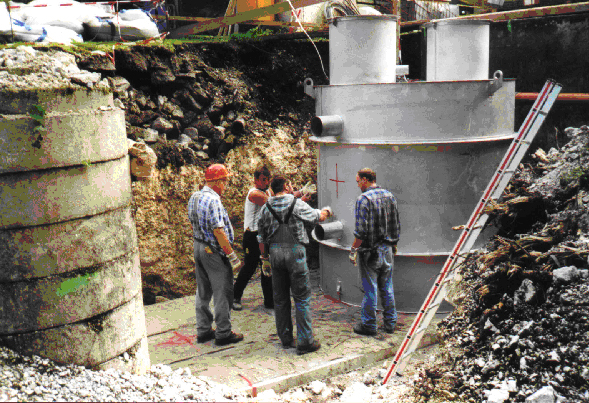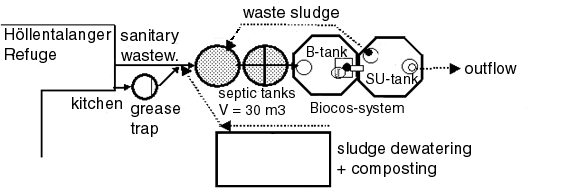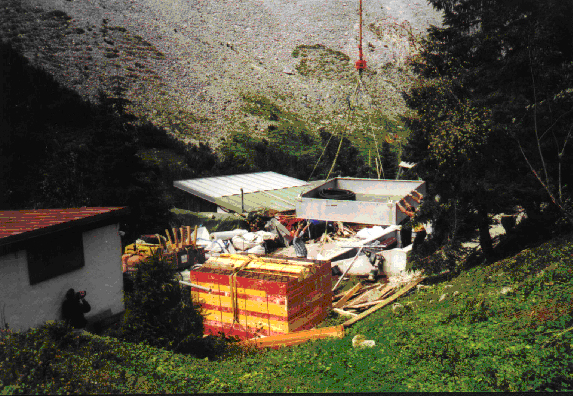environmental benefit of wastewater treatment plants in mountainous areas in the alps

|
Comparison of technology, costs and environmental benefit of wastewater treatment plants in mountainous areas in the alps |

|
Site description and boundary conditions
Disign and treatment efficiency
maximum daily organic load [PE]
216 maximum hydraulic load [m3/d]
10 annual organic load [kg BOD/a]
700
altitude [m a.s.l.]
1379
sensitivity [hydrogeology, protected area ...] nature reserve, lime
lagal requirements [BOD elimination]
< 40 mg/l
operation period [season]
summer
energy supply [type, kW]
aggregate, 32 / 45
means of transport [type]
supply cable car
existing WWTP [type, condition, volume l/PE]
3-chambers, good condition, 140

Fig. 4.20: On the left hand side a tank of the existing treatment system, on the right hand side the new high-grade steel SU-tank transported by a helicopter.

Fig. 4.21: Flow-scheme of the WWTP Höllentalanger Refuge

Fig. 4.22: Helicopter transport of the 2 sludge drying beds (high-grade steel box set into a concrete frame)
Loadind of the biological treatment
WWTP Höllentalanger Refuge seasonal average max. week max. day loading [PE40] 84 165 216 BOD 5-load [kg/d] 3.36 6.6 8.64 influent flow Q [m3/d] 4.1 8.7 10
Bemessung according to the F/M ration in the max. week
Vaerob = 12 m3 (volume B-tank)
Maerob = 12 m3 x 5 kg SS/m3 = 60 kg SS (aerobic sludge mass)
BSS = 6.6 kg BOD5 /d / 60 kg SS = 0.11 kg/kg.d (aerobic sludge loading)
OB = 6.6 x 3 kg O2/kg BSB5 : 16 h = 1.24 kg O2 /h (oxygen demand)
Energy demand
max. power [W] max. electric work
[kWh/d]mean electric work
[kWh/d]3000 48 48
Treatment efficiency
date
[dd.mm.yyyy]
CODeffluent [mg/l] NH4 -Neffluent [mg/l] NO3 -Neffluent [mg/l] CSBelimination [%] Nelimination [%] loading
[% of PEmax ]22.09.2000 155 70 21 89 71 - 09.08.2001 165 4 2.6 81 96 71